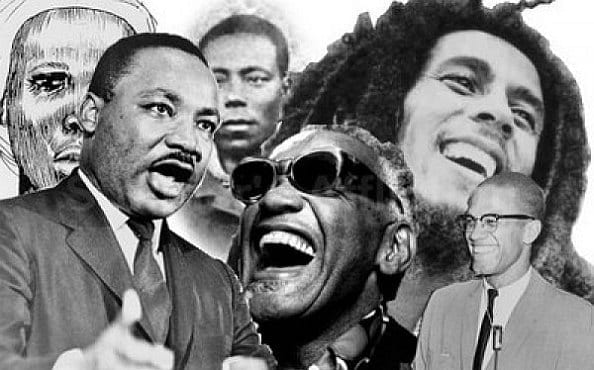BY ZAMIRAH HUSSAIN- ARTS AND LEISURE EDITOR
In 1915, Dr. Carter G. Woodson, African-American historian, author, and journalist, founded the Association for the Study of Negro Life and History (ASNLH). This organization later became the driving force behind the establishment of Black History Month. Originally “Negro History Week,” the leaders of the ASNLH chose the second week of February in order to coincide with Abraham’s Lincoln’s birthday on February 12 and Frederick Douglass’s on February 14, dates which were already celebrated by many members of the black community.
It was not until February 1969 that leaders of the Black United Students at Kent State University decided to create a Black History Month. One year later, they celebrated the first Black History Month, and it was officially recognized by the United States government in 1976 as part of President Gerald Ford’s U.S. Bicentennial celebrations.
All over the country, Black History Month is celebrated by communities and in schools as a way of recognizing figures in black history that may not be noted otherwise. Here at Centre, we have a number of events planned to celebrate Black History Month.
According to Diversity Student Union (DSU) Co-President Amariah Ritchie, DSU is placing an emphasis on the importance and meaning of black history. “We’re trying to make the student body think about the importance of black history being more present on campus,” she said. Facts about figures such as Madame C.J Walker and Dorothy Height can be found in the napkin holders in Cowan. DSU will also be compiling a video from short interviews with students about what black history means to them.
Sister to Sister and Centre Feminists are both contributing to the month-long celebration by focusing on the contributions of African-American women to society. According to Oyin Aderoba, Sister to Sister will be hosting a discussion on black identity in the Grissom room in the library. The organization is also planning to have a table outside Cowan where everyone is given an opportunity to write what being black is to them, which will be a part of the discussion.
Emily Greenwell, President of Centre Feminists, says that the club is planning to ask members to place small posters around campus to provide information on important black women throughout history. “We understand that women of color and their historical significance is often downplayed or left out of the canonical historical narrative and want to draw attention to what has been overlooked,” she said.
Dr. Rodmon King, the Associate Vice President for Academic Affairs and Diversity Initiatives, also had a few words to share about the importance of black history month. “The importance of black history month stands out because we still deal with issues of race and racism in the community. One of the most powerful tools we have to combat that prejudice is knowledge. Black history month provides us with a valuable resource to gain that knowledge,” he said.
He also spoke of what the diversity office would like to see on Centre’s campus to celebrate black history month. “My hope is to expand what we’re doing. As of now there are some events planned by DSU, such as the “Unity: Celebrating Identities, Sharing Stories, and Building Community” convocation on February 16. But there is so much more we could do to understand and appreciate what the African-American community contributes.”
But what does Black History Month mean to African-American Centre students?
Rachel Cooper, an African-American first year, is surprised that Centre seems to do more for Martin Luther King, Jr. Day than for the whole month that is dedicated to black history. “Black History Month is a time when the entire country acknowledges the important roles black people have played in history since the beginning of time, but it is unfortunate that this is the only time of the year that people learn about blacks in history. I would love to see a convocation that is focused on Black History Month,” she said.
For Dahabo Kerow, a Kenyan-American first year, Black History Month is “a month where people will somewhat recognize our humanity and we, the black community, can have a month of inspiring empowerment. I want the month to relay the message that black people go through oppression every day and it needs to change.”
Throughout the numerous interviews there has been an emphasis placed on the unity and representation that Black History Month provides. The month of February should provide an official and undeniable spotlight onto the value and importance of the African-American community in American history.
